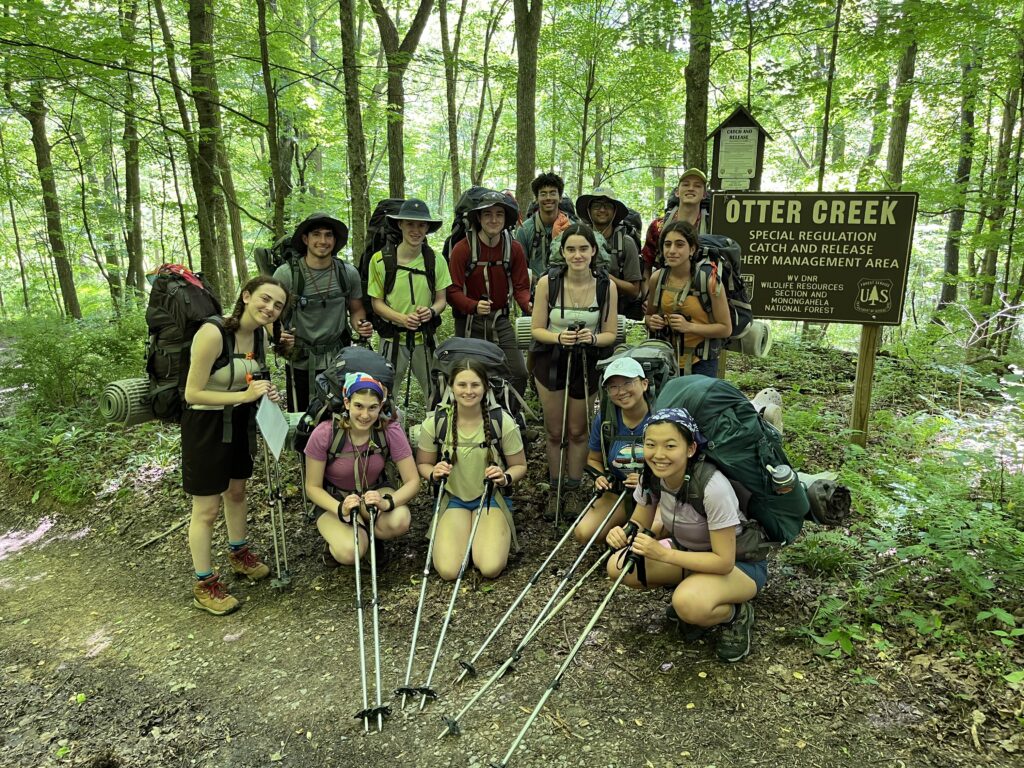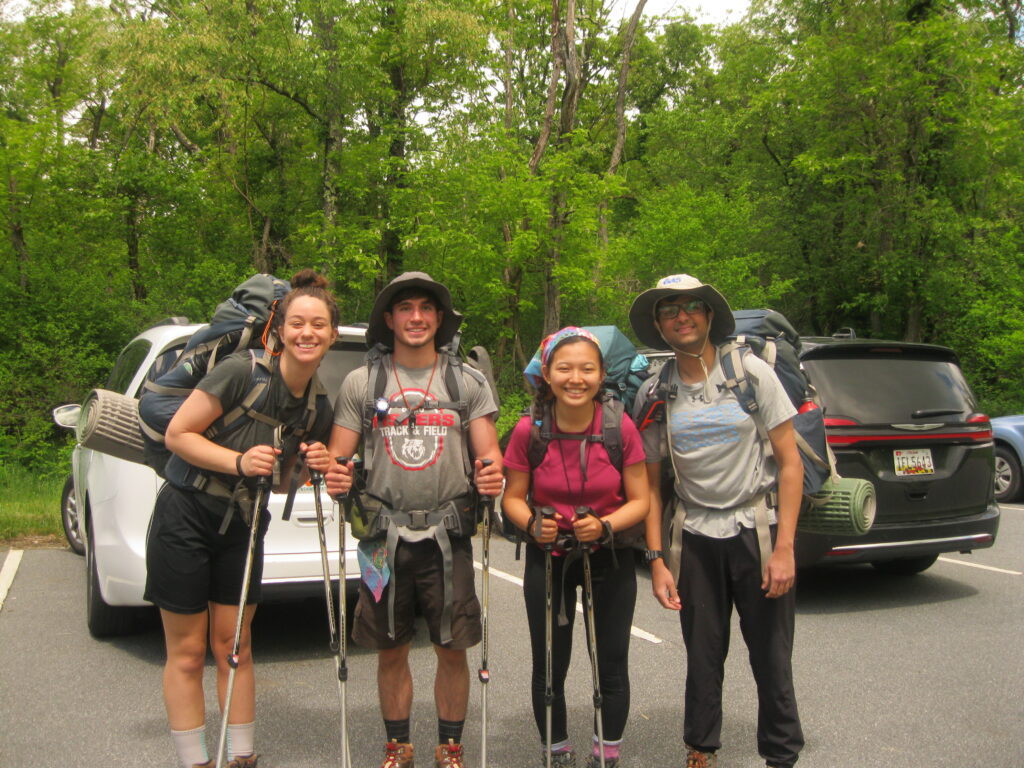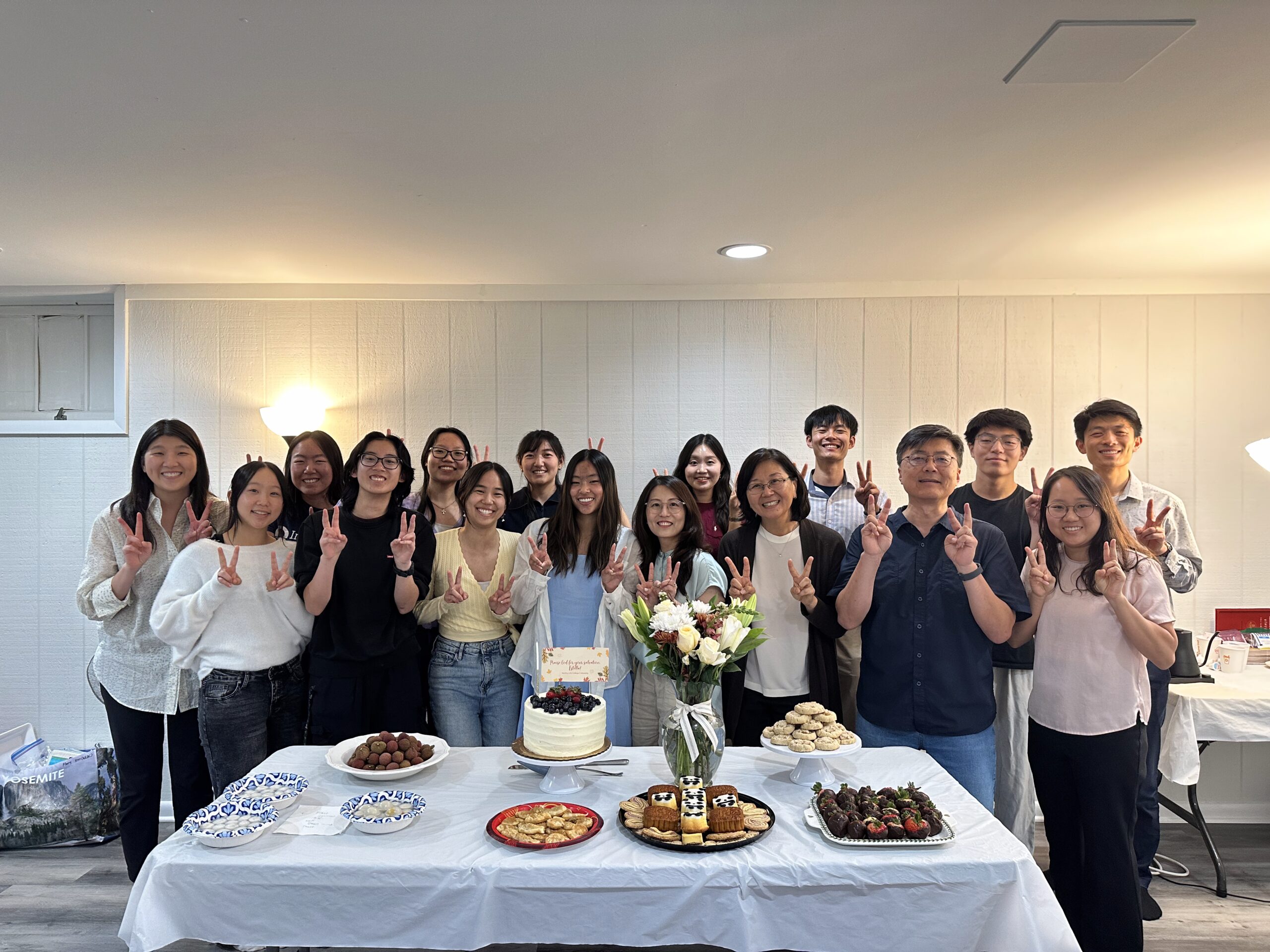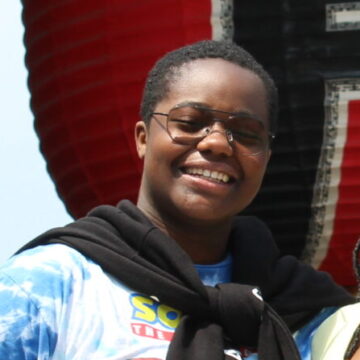
You’re in the eighth mile of what was supposed to be a mere five-mile pre-lunch hike, on day four of a twelve-day backpacking training trip with Johns Hopkins Experiential Education. You’ve been circling the same trail for about an hour now on a misty, damp afternoon underneath the tall trees in Shenandoah National Park. The threat of rain looms every minute, and the pressure to set up camp intensifies. You were certain that you would find a campsite—or really, at least a clearing where you could hang your tarps. Suddenly, 13 pairs of eyes look toward you, a leader, and someone asks: “Do you know where we’re going?”

That phrase, although an innocuous inquiry by curious campers, is gut-wrenching when your answer is a profound “No.” In that moment, I felt lost—and not just geographically (which we kind of were). My inability to answer took a toll on my self-confidence, and I began questioning my leadership and effectiveness of planning. I started running in my bulky hiking boots in hopes of finding something, anything, that could pass the five ‘W’ check we typically use to evaluate campsites. After scampering up and down the trail for 20 minutes with my co-lead, we eventually found something remotely manageable. We put our tarps up in time for the rain and spent the rest of the evening gossiping under the covers. That seemed to be that.
It was not.
When I sat down on a rock shortly after to confront my feelings, I attempted to examine the model of leadership I was trying to embody for my trainees. The leaders I had seen throughout my life—noticeably in high school and the outdoors club here at Hopkins— always exuded confidence, even in the most nerve-wracking situations. As someone in training, I’d always judged the process by its results, trusting my leader’s decision-making without giving it a second thought. Now, in their position, I wondered if they really knew what they were doing!
Upon returning from the wild to civilization, I sat down with some of my favorite club graduates to pick their brains on leadership styles and techniques. My first question to them was the same one I was asked: “Did you know where we were going?” They said “No, but we were confident the group would get it right that night.”
That sentence unlocked a lot of learnings for me. Maintaining your cool and confidence through the toughest times was the best way to reassure your group while you figured things out. Our leaders are human after all; they are bound to make mistakes or not know how to deal with unforeseen circumstances. Yet, it’s how they improvised, adapted, and overcame such situations that led us to trust them in the first place! This is not to say we should never expect them to make mistakes; after all, those are just learning opportunities for all of us.
Mistakes are how we know not to do the same less-than-ideal thing twice (like falling off the side of a hill during a tricky descent because you were just too excited to be done for the day). Often, leaders making mistakes makes us better equipped to handle such situations in the future. By experiencing errors in a safe learning environment, you are pushed to the edge of your growth zone. This safe environment is one for leaders to learn in as well! At least on trips like this, you’re never alone in your decision making. I had the benefit of being on a team of four, so I knew every decision I contributed to had been thought over at least four times.

I know how important these opportunities to prove myself as a leader are to me, and not a day goes by where I don’t thank my fellow club members for their time, energy, and fun-lovingness in making such trips possible. If the outdoors isn’t for you, know that Hopkins gives us numerous chances to prove yourself to yourself—whether that’s leadership in one of its many registered student organizations, or participation in an activity you’ve never tried before. So many of the Hopkins affiliates I meet on outdoors trips tell me how thrilled they are to try something new and push themselves out of their comfort zones. I hope you find something at college that excites you, challenges you, and makes you feel more whole, to the most important stakeholder in your life: yourself!






